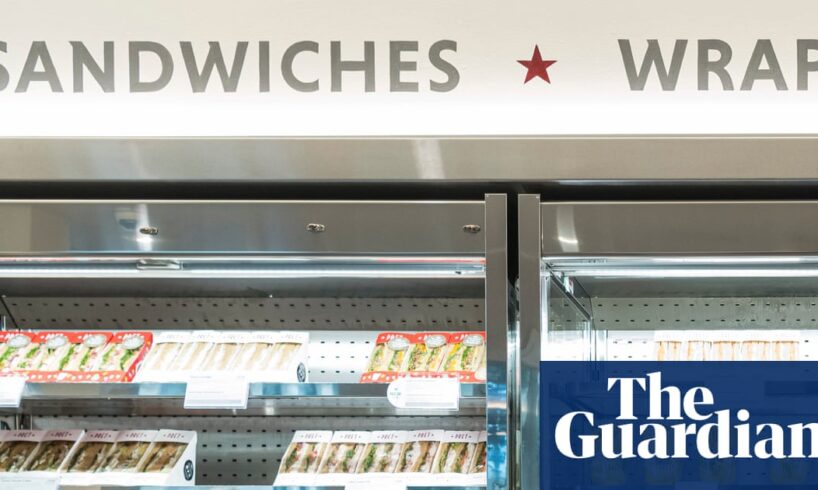
Pret a Manger is finally caving in to competition from supermarkets by launching meal deals, after the value of the chain was slashed by a third amid “intense strains” on the hospitality industry.
The sandwich and coffee chain said it intends to test the meal deal format in the last quarter of this year, as a medium-term strategy to grow the Pret brand and return to sustainable profits. It did not say how much the meal deals will cost.
In the UK, meal deals will be tested across two parts of the day – a croissant and coffee for breakfast; crisps and a bread-based sandwich; and also any lunch main, snack and a drink.
In January Pret launched a meal deal in France, which is performing well.
“Going forward our priority will be to drive transactions and sustainable growth by offering great value for money for Pret customers,” said Pano Christou, the chief executive of Pret.
Supermarkets and other high street retailers have long offered meal deals, offering a sandwich, snack and drink for a set price. These have been creeping up in price amid rising food inflation, with Tesco recently increasing the price of its meal deal by 25p to £3.85 for Clubcard holders, its third increase since 2022.
Pret’s parent company, JAB, which bought the chain from the British private equity company Bridgepoint for £1.5bn in 2018, revealed that Pret made a £525.5m pre-tax loss last year.
The company, which made a £61.7m loss in 2023, was hit by a £552.9m non-cash writedown, which is understood to relate to how JAB assessed the value of the brand, its properties and other assets linked to Pret.
The writedown equates to slashing the value of the chain by about a third compared with its acquisition price.
In a filing, the company said that it had never previously recorded an impairment charge for the business but considered last year to be the first since the onset of Covid with “consistent trading data to base future forecasts”.
The company said the impairment in value had taken into account the current uncertain global macroeconomic environment, as well as additional costs arising from last autumn’s budget, which included a rise in employer national insurance contributions and an increase in the minimum wage.
After adjusting for the non-cash impairments, Pret made a £98m operational profit, a 36% year-on-year increase.
Like-for-like sales grew 2.8% and total revenues including new openings grew by 10% to £1.2bn.
“2024 was another year of growth for Pret, where we took disciplined decisions to protect sales, despite intense strains on the hospitality industry,” Christou said.
The company revealed that the total number of directly employed staff fell by almost 1,400 last year, a 14% drop from 9,541 to 8,165, because of the sale of stores. Overall, including in franchise stores, the company has 12,000 staff worldwide.
skip past newsletter promotion
Sign up to Business Today
Get set for the working day – we’ll point you to all the business news and analysis you need every morning
Privacy Notice: Newsletters may contain information about charities, online ads, and content funded by outside parties. If you do not have an account, we will create a guest account for you on theguardian.com to send you this newsletter. You can complete full registration at any time. For more information about how we use your data see our Privacy Policy. We use Google reCaptcha to protect our website and the Google Privacy Policy and Terms of Service apply.
after newsletter promotion
Over the course of last year Pret increased its international presence, growing its number of shops by 11% to 717, with a focus on the US. Pret opened its first store in London in 1986.
“Our focus will be on growing Pret’s market share in the UK and internationally, prioritising city centres and travel hubs,” Christou said.
Last year Pret scrapped its popular five-drinks-a-day subscription service priced at £30, replacing it with a £5-a-month “Club Pret” giving members 50% off up to five barista-made drinks daily.
Last month it emerged that Coca-Cola had met potential buyers to discuss a cut-price deal to sell Costa Coffee.
The fizzy drinks company bought the chain in 2018 from Whitbread, the owner of the Premier Inn hotel chain, for £3.9bn.
However, high street chains have struggled with rising costs, including a steep increase in coffee bean prices, higher employment costs and competition.
According to the report, potential suitors may only be willing to pay £2bn for Costa Coffee, nearly half what Coca-Cola paid for the business.





